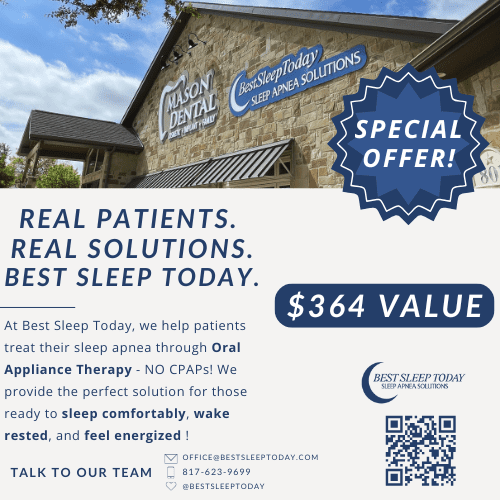Imagine waking up in the middle of the night, gasping for air, or feeling exhausted despite a full night’s sleep. For many, this isn’t just a nightmare—it’s a reality known as sleep apnea. Affecting millions worldwide, sleep apnea isn’t just about snoring; it’s a severe health condition that can have far-reaching consequences on your well-being. This blog post from Best Sleep Today explores the dangers of sleep apnea, why it’s critical to address it, and how sufferers and health enthusiasts can take actionable steps toward better sleep.
What is Sleep Apnea?
Sleep apnea is a disorder where breathing repeatedly stops and starts during sleep. These interruptions, called apneas, can last from a few seconds to minutes and occur multiple times per hour. The most common form, obstructive sleep apnea (OSA), happens when throat muscles intermittently relax and block the airway.
Common Symptoms of Sleep Apnea
- Loud Snoring: Often the most noticeable symptom, loud and chronic snoring can indicate sleep apnea.
- Gasping for Air: Waking up with a choking or gasping sensation is a red flag.
- Daytime Fatigue: Persistent tiredness and difficulty staying awake during the day are common.
Health Risks of Untreated Sleep Apnea
Ignoring sleep apnea can lead to severe health problems. Here are some dangers of leaving this condition untreated:
- Heart Disease: Sleep apnea increases the risk of heart attacks, strokes, and high blood pressure.
- Diabetes: There’s a strong link between sleep apnea and type 2 diabetes.
- Mental Health Issues: Anxiety, depression, and other mental health disorders can be exacerbated.
Diagnosis and Treatment Options
Recognizing the symptoms and seeking medical help is crucial. Diagnosis often involves overnight monitoring at a sleep center or home-based sleep tests. Treatment options include:
- CPAP Therapy: Continuous Positive Airway Pressure (CPAP) machines are the gold standard. They keep airways open by providing a steady stream of air through a mask.
- Lifestyle Changes: Weight loss, quitting smoking, and avoiding alcohol can improve symptoms.
- Surgery: In severe cases, surgical interventions may be necessary to remove tissue or reposition the jaw.
The Role of Lifestyle in Managing Sleep Apnea
Lifestyle changes can significantly impact sleep apnea management:
- Healthy Diet: Eating a balanced diet can help with weight management, reducing OSA severity.
- Regular Exercise: Physical activity strengthens the cardiovascular system and aids weight loss.
- Sleep Hygiene: Establishing a regular sleep schedule and creating a comfortable sleep environment is vital.
Tips for Better Sleep with Sleep Apnea
Here are some practical tips to help manage sleep apnea and improve sleep quality:
- Sleep Position: Sleeping on your side can prevent airway blockage.
- Elevate Head: Using a higher pillow or elevating the bed’s head can reduce snoring and apneas.
- Nasal Strips: These can help keep nasal passages open.
Impact on Personal and Professional Life
The effects of sleep apnea extend beyond health, impacting personal and professional life:
- Relationships: Snoring and restlessness can strain relationships with bed partners.
- Work Performance: Daytime fatigue can affect concentration and productivity at work.
- Safety: Increased risk of accidents, especially while driving, due to excessive daytime sleepiness.
Technology and Sleep Apnea
Advancements in technology have made managing sleep apnea easier. Innovative devices and apps now assist in monitoring and improving sleep quality:
- Smart CPAP Machines: Offer data tracking and personalized adjustments.
- Sleep Apps: Apps like SleepCycle monitor sleep patterns and provide insights.
Support Systems and Resources
Seeking support from others who understand can be comforting. Joining sleep apnea support groups, either online or in-person, can provide valuable insights and encouragement.
Myths and Misconceptions about Sleep Apnea
Educating oneself is crucial to dispel common myths:
- Myth: Only overweight people get sleep apnea.
- Fact: While weight is a risk factor, sleep apnea can affect anyone, regardless of body type.
- Myth: Snoring always indicates sleep apnea.
- Fact: Not everyone who snores has sleep apnea, but it’s a significant indicator.
The Importance of Regular Check-ups
Regular medical check-ups can help monitor and manage sleep apnea effectively. Discuss any concerns with a healthcare provider to ensure appropriate treatment adjustments.
Sleep apnea is more than just a nuisance; it’s a serious health condition that requires attention and proactive management. By understanding its dangers, recognizing symptoms, and exploring treatment options, you can take control of your sleep and overall well-being. Don’t wait—act now to reclaim your nights and improve your life. For personalized guidance and expert advice, book a consultation with Best Sleep Today













